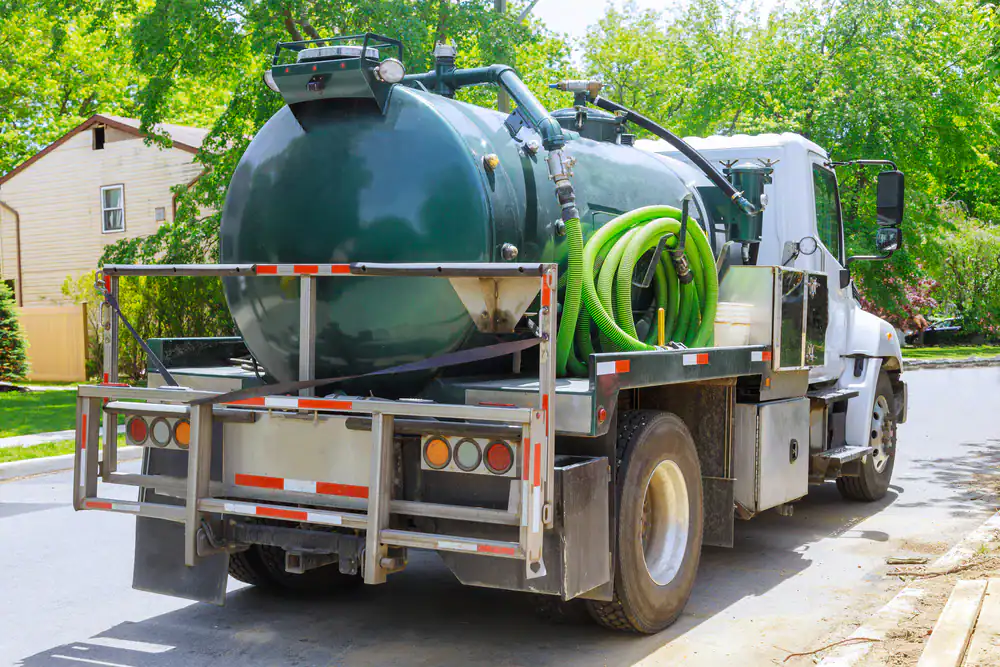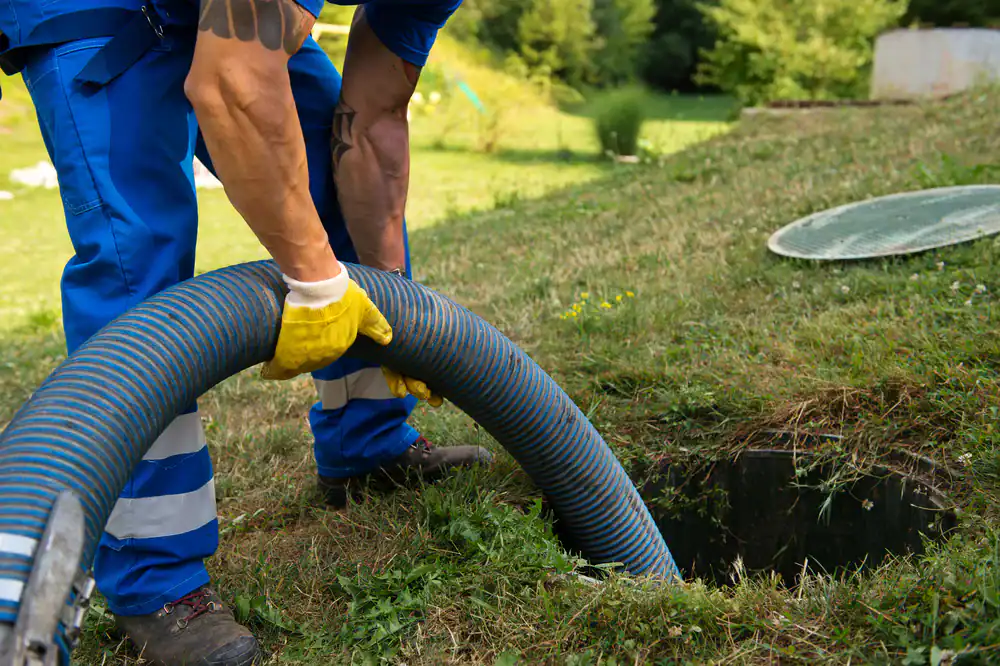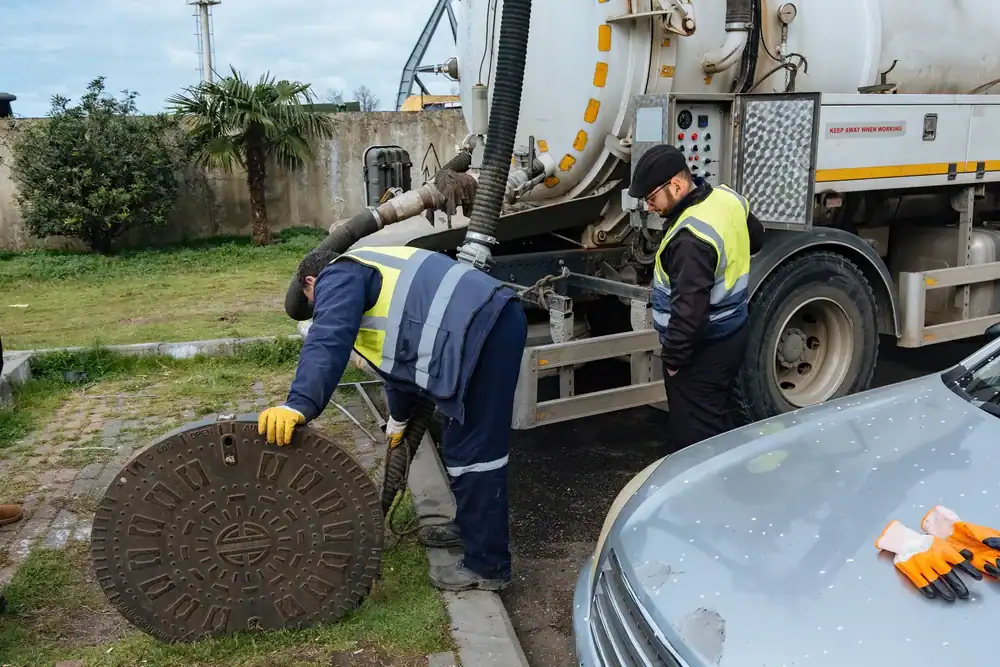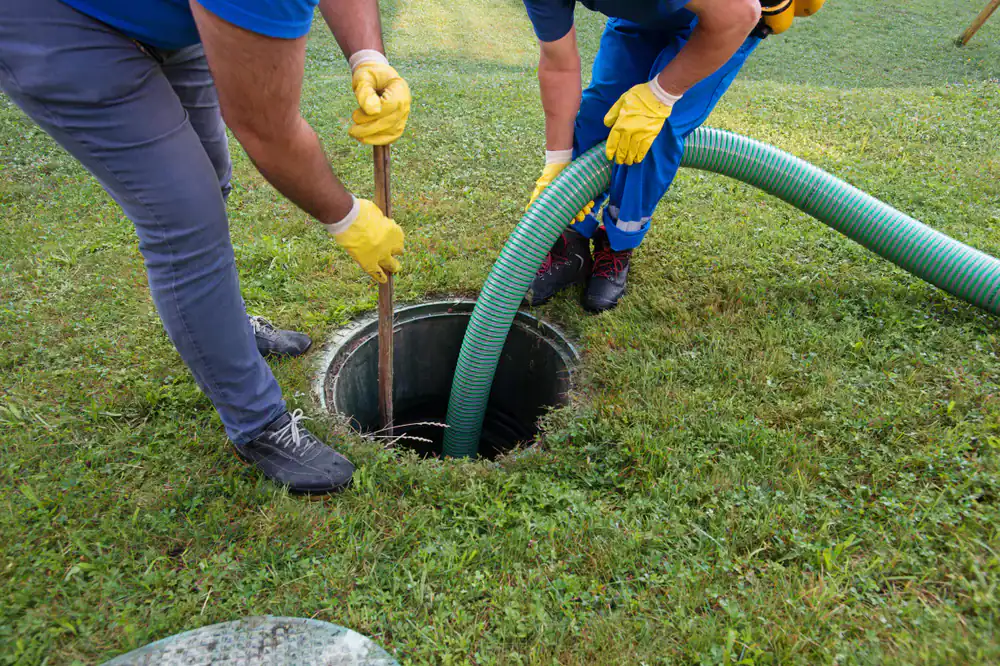
Our Reviews

Sewage backing up into your home isn’t just disgusting – it’s a health hazard that gets worse by the hour. You need your septic system working properly so you can use your bathrooms, run your dishwasher, and live normally again.
When we fix your septic tank plumbing, you get peace of mind knowing the job’s done right. No more foul odors wafting from your yard. No more standing water over your drain field. No more wondering if that gurgling sound means disaster.
Our septic system repairs handle everything from clogged lines to failed drain fields. You get a system that works reliably, protects your property value, and keeps your family safe from contamination.
All Rooter Hydro Jetting Experts Inc. has been handling septic emergencies across the Chicago area for years. We’re licensed, bonded, and insured because septic work isn’t something you trust to just anyone.
Stony Island properties often deal with clay soil that doesn’t drain well, older septic systems that weren’t built to today’s standards, and the freeze-thaw cycles that crack pipes. We’ve seen it all and know how to fix it right the first time.
You’re not getting a fly-by-night operation. You’re getting local professionals who understand Chicago-area septic challenges and have the equipment to handle them properly.

First, we diagnose the problem with a thorough inspection of your septic tank, distribution box, and drain field. We use cameras and pressure testing to find exactly what’s wrong – no guessing.
Next, we explain what we found and give you upfront pricing before any work begins. If it’s a clogged line, we’ll use hydro jetting to clear it completely. If your drain field is failing, we’ll discuss restoration options that make sense for your property.
Finally, we complete the repair using professional-grade materials and techniques that last. You’ll know exactly what was done, how to maintain your system, and when to call us for routine service. No mysteries, no surprise bills.

Ready to get started?
Our septic tank plumbing services cover every part of your system. We handle emergency septic repairs when sewage is backing up, septic line clog repair when drains are slow, and septic drain field restoration when your yard is soggy.
Stony Island’s clay soil creates unique challenges for septic systems. Clay doesn’t absorb wastewater well, which means drain fields fail faster here than in sandy areas. We know how to work with these soil conditions and design solutions that actually function long-term.
You also get hydro jetting services that completely clear septic lines of grease, roots, and debris. This isn’t just snaking – it’s high-pressure water that scours pipes clean and prevents future clogs. Most companies don’t have this equipment, but it makes all the difference for lasting repairs.

Call immediately if sewage is backing up into your home, toilets won’t flush properly, or you smell sewage inside your house. These are signs of a serious blockage or system failure that won’t fix itself.
Other warning signs include gurgling sounds from drains, slow-draining sinks and tubs, or standing water in your yard over the septic system. Foul odors outside near your septic tank or drain field also indicate problems that need professional attention.
Don’t wait on septic issues. What starts as slow drains can quickly become sewage flooding your basement or contaminating your well water.
Tree roots are the biggest culprit, especially from mature trees common in Stony Island neighborhoods. Roots seek out water and nutrients in septic lines, growing through small cracks until they completely block the pipe.
Grease and food waste also build up over time, creating stubborn clogs that regular drain cleaners can’t touch. Many homeowners don’t realize their garbage disposal waste goes to the septic system, where it can cause serious problems.
Clay soil movement from freeze-thaw cycles can also shift or crack septic lines. When pipes separate or crack, debris gets in and creates blockages that require professional hydro jetting to clear completely.
Minor drain field issues like clogged distribution lines can often be fixed in a day. We use hydro jetting to clear blockages and restore proper water flow to the field.
More serious problems like compacted soil or failed drain lines typically take 2-3 days. This involves excavating problem areas, replacing damaged pipes, and sometimes adding new drainage material.
Complete drain field replacement is a bigger project that can take a week or more, depending on your property size and soil conditions. We’ll give you a realistic timeline upfront so you can plan accordingly.
Many septic line clogs can be cleared with hydro jetting without any excavation. We insert high-pressure water equipment through existing access points to scour pipes clean.
For blockages in the main line between your house and septic tank, we often only need to dig small access holes rather than trenching the entire line. Camera inspections help us pinpoint exactly where the problem is.
However, failed drain fields or severely damaged pipes do require excavation. We minimize digging by using precise location equipment and restore your landscaping when the job is complete.
Our upfront pricing includes diagnosis, labor, materials, and cleanup – no surprise charges. You’ll know exactly what you’re paying before we start work.
For hydro jetting services, this includes camera inspection to locate clogs, high-pressure cleaning of the entire line, and verification that water flow is restored. We also provide recommendations for preventing future problems.
Emergency service calls include after-hours availability and same-day response when you’re dealing with sewage backups. We don’t charge extra just because your septic system fails on weekends or holidays.
Most septic tanks need pumping every 3-5 years, but Stony Island’s clay soil can require more frequent service. Clay doesn’t filter wastewater as well as sand, so solids build up faster in the tank.
We recommend annual inspections to catch small problems before they become expensive emergencies. This includes checking baffles, measuring sludge levels, and testing drain field function.
Hydro jetting your septic lines every 2-3 years prevents root intrusion and grease buildup that causes major clogs. It’s much cheaper than emergency repairs when your system completely fails.